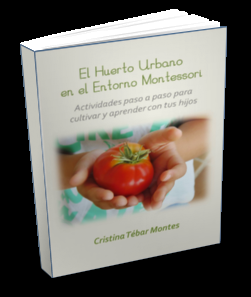
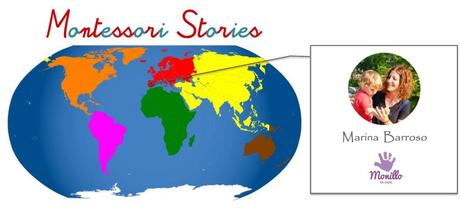
(scroll down for English)
Hoy en Montessori Stories tengo como invitada a Marina Barroso, autora del blog Monillo en casa, en el que comparte el día a día de la crianza de su peque de 2 años. En la entrevista de hoy Marina nos cuenta cómo llegó Montessori a su vida y cómo lo integran en casa día a día.
¿Cómo conociste Montessori? "Conocía" algo de María Montessori porque en una asignatura de la carrera la citaban dentro de las pedagogías innovadoras. Entrecomillo conocía porque lo máximo que me contaron es que trabajaba a través de los sentidos y citaban algunos materiales emblemáticos. Cuando lo descubrí verdaderamente fue cuando empezamos a buscar alternativas a la típica cuna de barrotes para bebés. Indagando primero por internet, leyendo blogs y libros dedicados a la crianza aplicando Montessori me di cuenta que Montessori era lo que iba en consonancia con nuestra manera de entender la vida, y como queríamos que creciera nuestro hijo, brindarle la ayuda a su independencia, ofrecerle un lugar de verdad en el hogar, descubrir el mundo desde la experiencia... Así que tomamos un taller práctico para familias, y bueno...yo ya no he parado. Tanto que estoy acabando mi formación como guía de Comunidad Infantil. Después de trabajar durante años en escuelas tradicionales me he dado cuenta donde está el fallo, en el protagonismo del adulto frente al niño. Eso es algo esencial en Montessori, y debería serlo en todo tipo de metodología. El niño debe ser quien guíe su camino, no el adulto.
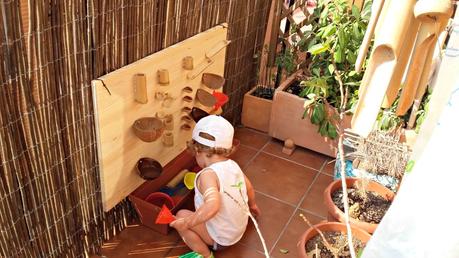

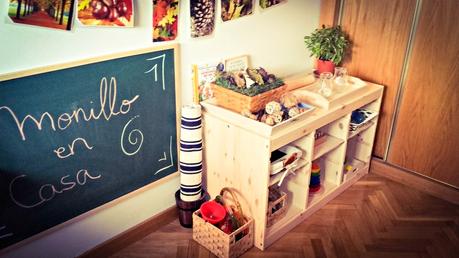

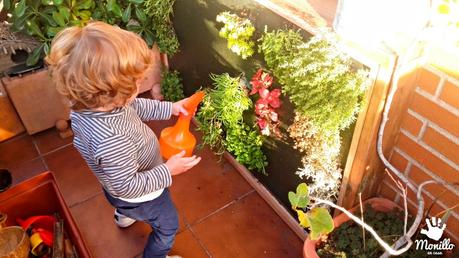

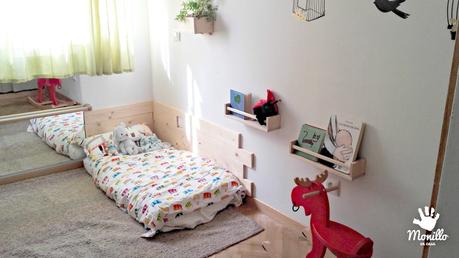

 Soy Marina, una mamá decidida a demostrar que podemos mirar a través de los ojos de un niño, descubrir su esencia, y volver a vivir la vida intensamente de la mano de los más pequeños. Así surgió Monillo en casa, un espacio donde comparto nuestra forma de descubrir los pequeños (grandes) detalles que nos brinda el mundo de la mano de nuestro pequeño de 2 años, aplicando Montessori en nuestra vida diaria. Siendo maestra de educación Infantil, desde que nació mi hijo mi visión sobre la crianza y la educación ha ido dando un giro, desaprendiendo mucho y dejándome llevar de la sabiduría de los niños.
Soy Marina, una mamá decidida a demostrar que podemos mirar a través de los ojos de un niño, descubrir su esencia, y volver a vivir la vida intensamente de la mano de los más pequeños. Así surgió Monillo en casa, un espacio donde comparto nuestra forma de descubrir los pequeños (grandes) detalles que nos brinda el mundo de la mano de nuestro pequeño de 2 años, aplicando Montessori en nuestra vida diaria. Siendo maestra de educación Infantil, desde que nació mi hijo mi visión sobre la crianza y la educación ha ido dando un giro, desaprendiendo mucho y dejándome llevar de la sabiduría de los niños.


¿Te ha gustado? ¡Compártelo! 🙂

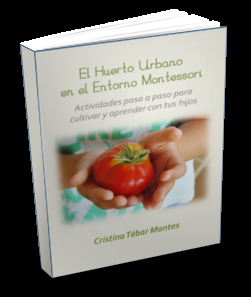

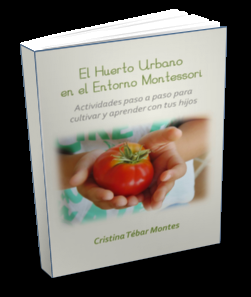
Today at Montessori Stories my guest is Marina Barroso, author of the blog Monillo en casa, in which she shares the day to day of raising her 2 year old son. In today's interview Marina tells us how Montessori arrived in her life and how they integrate it at home day by day.
How did you first get to know about Montessori? I had "heard" something about Maria Montessori because in a subject during my degree she was included within the innovative pedagogies. I quote "heard" because the most they told me was that she worked through the senses and cited some emblematic materials. When I really discovered it, it was when we started looking for alternatives to the typical baby cradle. Inquiring first on the internet, reading blogs and books dedicated to parenting applying Montessori I realized that Montessori was in line with our way of understanding life, and how we wanted our child to grow, to help him with his independence, to offer him a real place at home, discover the world from experience... So we took a practical workshop for families, and well... I have not stopped. So much that I am finishing my training as a guide for Infant Community. After working for years in traditional schools I have realized where the fault is, in the protagonism of the adult in front of the child. That is essential in Montessori, and should be in all kinds of methodology. The child must be the one who guides his path, not the adult. What are the reasons that made you choose Montessori as a good way of raising your child? There are many reasons why we have chosen this way of educating our child. The first of all is what I said before, which puts the child at the center of their development and learning, not behind the adult as it is traditionally done. Stopping to observe all that a child can get to absorb in a prepared environment is simply wonderful. We want our child to be independent both physically and mentally, to be able to make his own decisions, to be free to own his own body, to respect and care for himself and others, to be cooperative and responsible... all this is possible and is acquired naturally following the Montessori philosophy. The concrete of the method is something that also fascinates me. The children are like that, they have not acquired the level of abstraction that is demanded of them sometimes too early. In Montessori everything has some logical steps, a sense, a control of error that also helps them to be autonomous and acquire security in themselves. In addition it is absent from rewards and punishments, it reinforces the intrinsic motivation, which is something that we usually destroy since they are babies. That the children enjoy what they do is the internal satisfaction that helps them continue developing with that spark that adults are not able to see. Does or will your son go to a Montessori school, other kind of school, or do you homeschool? During this year he goes to a playgroup for children from 1 to 3, where the rhythms of the child are followed, the ratio is very small and families are always welcome. They work through active pedagogies and although it is not Montessori, I found it an alternative to traditional school because of its flexibility and where you can share games with other children for a little while in the morning. I am working on an educational project based on Montessori from which to reconcile our family and work life, which we hope will see the light soon, thus contributing my grain of sand to change. This is the opportunity that I can give my son and other children to access this type of education, otherwise we would consider waiting until age six to go to school and in the meantime we would homeschool. What makes your home a Montessori home? In our family the main thing is that we are all the same, we all have a voice and vote, and we must all feel that the house is our home. We have been making changes at home adapting the rooms to the needs of the child, with furniture at his height, toys and accessible materials and tools that favor his autonomy in his daily life. But the essence is the way to address him, as a human being just like us, respecting his needs, making him a participant in the home life, offering him the confidence he needs to guide us, and above all with a lot of affection and a bond of attachment insurance. His education based on Montessori is a journey that we are going through all three, an internal change that we are making as parents and sowing the seeds that will bear fruit in its time, without forcing it. There is much talk of "debauchery" associated with Montessori, but it is not. We have limits at home, few but clear, always following principles of respect and security. Thanks to them and the prepared environment, the child learns to live together in a responsible and respectful way, without having to have the authoritarian adult above him. Any advice or suggestion for those who want to introduce Montessori in their family and don't know where to start? First of all, do not start the house by the roof. Applying Montessori at home is not filling the house with materials and wondering all the time whether if something is Montessori or not. It's something I see in many groups and it really does not make sense. I think it is basic to read a lot about the philosophical bases, and in turn to see the potential of the child, raise him with much love but without limiting his independence. Enjoy the little things of the day to day, avoid the rush, enhance its autonomy by offering simple tools and an orderly environment (accessible clothes, furniture of their size, ordered toys at their reach...) But above all listen to children. It is something we have forgotten, to stop and listen to what is needed, to observe in silence, to let them unwind, to wait, to encourage them without empty praises, to forget about punishments without meaning and to let them learn from experiences. See in the mistakes a way to learn naturally, and of course, enjoy with them of all times shared.

 I am Marina, a mother determined to show that we can look through the eyes of a child, discover their essence, and live life intensely with the little ones. So I started the blog Monillo en casa, a space where we share our way of discovering the little (big) details that the world gives us through our little 2 years, applying Montessori in our daily life. As an early years teacher, since my son was born, my vision of parenting and education has taken a turn, unleashing a lot and letting me take the wisdom of children.
I am Marina, a mother determined to show that we can look through the eyes of a child, discover their essence, and live life intensely with the little ones. So I started the blog Monillo en casa, a space where we share our way of discovering the little (big) details that the world gives us through our little 2 years, applying Montessori in our daily life. As an early years teacher, since my son was born, my vision of parenting and education has taken a turn, unleashing a lot and letting me take the wisdom of children.


Did you like this post? Share it! 🙂

